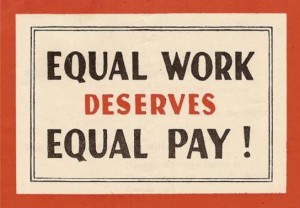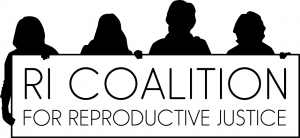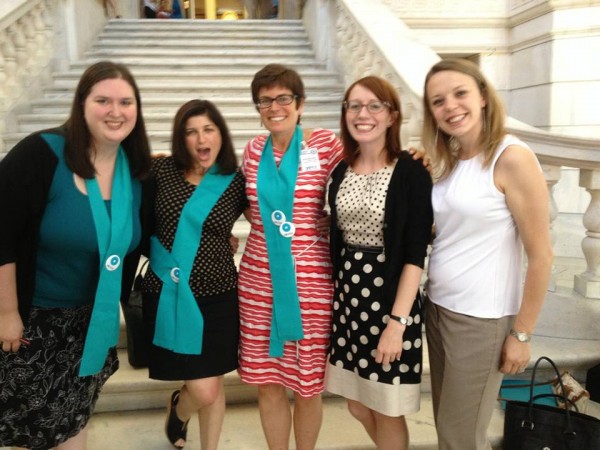
Not only could Rhode Island have its first female governor in Gina Raimondo by 2015, there could also be more women than men in statewide offices.
The general election ballot will feature three women – two Democrats and one Republican – running for five statewide offices. The treasurer and attorney general contests feature four male candidates.
“There’s the potential for a majority of women holding statewide offices,” said Carolyn Mark, the president of Rhode Island National Organization of Women. “That’s huge.”
For governor, Democrat Raimondo is facing Republican Allan Fung. In the lt. governor’s race Republican Catherine Taylor is running against Democrat Dan McKee. And the woman with perhaps the easiest path to victory is Democrat Nellie Gorbea, who after upsetting Guillaume de Ramel, will now face Republican John Carlevale in the general election.
Kara Russo was the only woman who lost on primary night, and she lost to Taylor. RI NOW endorsed Frank Ferri for lt governor, but Mark said the organization is open to reconsidering now that he is out of the race.
“We welcome the opportunity to talk to [Taylor] about that,” Mark said.
In 2010, there were three women were on the primary ballot for statewide offices – Lt Gov. Elizabeth Roberts, Raimondo and Taylor. Both Roberts and Raimondo won in the primary and general election. In 2006, Roberts and Republican Sue Stenhouse, running for secretary of state, won in their primaries. Roberts beat Kerry King and Stenhouse lost to Ralph Mollis in the general election. In 2002, the Board of Elections website says Myrth York, a Democrat who ran for governor against Don Carcieri, was the only female candidate to run in a primary. In 1998, two women ran for attorney general: Democrat Eva Mancuso and Republican Nancy Mayer. Both lost to Sheldon Whitehouse.
While Mark was pleased with the statewide results – RI NOW endorsed Raimondo and Gorbea – she said she Providence Rep. Maria Cimini’s primary loss was “tragic.”
“She is one of those exceptional people smart enough to understand the issues and empathetic to the struggles of everyday Rhode Islanders,” Mark said. “It’s not just a loss of a woman, it’s a loss of HER. And it’s not just a loss for her district, but it’s a loss for the entire state.”
Mark took issue with House Speaker Nick Mattiello targeting Cimini. “If you stand up to leadership, you not only have to duke it out on the House floor, but also in an election, too.”
Correction: An earlier version of this post indicated there were only two women on the 2010 primary ballots.
]]> Another day, another dollar. Well, make that 81 cents if you are a woman working full time in Rhode Island.
Another day, another dollar. Well, make that 81 cents if you are a woman working full time in Rhode Island.
Today is Equal Pay Day, a day that symbolizes how many days into 2014 women need to work in order to make what men made in 2013. Of course, that’s for women as a whole – if you are African American you will need to work until May 11th, and if you are Hispanic/Latina you will have to work until June 17th.
There are few statistics out there that have been more maligned, confused, distorted, or dismissed as the statistics on equal pay. Some imply that the wage gap can be completely explained by sex discrimination, while others assert that the wage gap is caused exclusively by women’s choices. It seems that the greatest barrier to fixing the wage gap is that we can’t even agree on the problem.
And, it really matters. Women who work full time in Rhode Island are taking in, on average, $9,901 less per year than their male counterparts – meaning less money for food, housing, gas, and other discretionary expenses. Which is a really big problem given that families have come to rely on women’s wages to make ends meet.
This year, the American Association of University Women released a report entitled “The Simple Truth” in an attempt to shed some light on the oft-misunderstood statistics. The message is clear: yes, the wage gap does, in part, reflect men’s and women’s life choices, BUT not all of the gap can be explained away by this. In fact, even after accounting for college major, occupation, economic sector, hours worked, months unemployed since graduation, GPA, type of undergraduate institution, institution selectivity, age, geographical region and marital status, reports show persistent, unexplained gaps between men and women’s wages of between 7% and 12%.
Complex problems don’t often allow for simple solutions, and the wage gap is no exception. But the fact that this gap is complex is no excuse for not actively working to close it. And there are plenty of opportunities to go around, for individuals, employers, and government alike.
Individuals can work to shift a culture that historically undervalues occupations that have been traditionally held by women. And, women can make different career choices: whether you believe women freely choose lower paid occupations or are socialized into choosing “helping” professions over more lucrative ones, the fact is that getting ourselves into more nontraditional jobs will help to close the wage gap. And, yes, developing stronger negotiating skills can help women secure higher wages, something that is so critical early on in one’s career as those wages will become the basis for a lifetime of earnings. We can also work toward a more equitable distribution of child care and household responsibilities within the family so that men and women have equal opportunities to succeed in the workplace.
Employers can actively pursue workplace policies of fairness, openness and transparency when it comes to employee jobs and wages. They can hire more women in nontraditional jobs. They can provide on-site child care. They can recognize that some jobs have historically been undervalued because those jobs have traditionally been held by women, and can move to a more equitable pay system based on qualifications, years of experience, and job duties as a way to more equitably value the contributions of all employees. Pay equity audits are an important tool that can be used to monitor and address any gender pay differences. And, by the way, all of this can be good for the bottom line: studies have shown that workers who believe that they are paid fairly have higher morale and are more likely to contribute their best efforts to the job.
Government has an important role to play in creating a level playing field. The Equal Pay Act of 1963 was an important first step in ensuring equal pay for equal work. Title VII of the Civil Rights Act bars all discrimination in employment, including in hiring, firing, promotion, and wages on the basis of race, color, religion, sex or national origin. And, the Lilly Ledbetter Fair Pay Act of 2009 provides some additional protections against discrimination.
But there is still more to do. The Paycheck Fairness Act, currently pending in Congress, would close loopholes, strengthening incentives to prevent pay discrimination, and prohibiting retaliation against workers who inquire about employers’ wage practices or disclose their own wages. And, government can do more to provide child care supports to working families. Finally, government at both the federal and state level can use their status as employers to ensure pay equity in public sector employment, and can use the leverage of government contracts to ensure fairness and equity for those businesses and individuals who perform contract work with the government.
It’s time to stop debating the wage gap. While the gap can’t be completely chalked up to overt sex discrimination, neither can it be chalked up to women’s choices. The statistical fact is that the wage gap exists. The question is, what are we going to do about it?
Carolyn Mark is president of the Rhode Island Chapter of the National Organization for Women. To learn more, visit www.rinow.org.
]]> “In Rhode Island there is a real need for reproductive justice,” wrote RI National Organization for Women President Carolyn Mark on this site last week.
“In Rhode Island there is a real need for reproductive justice,” wrote RI National Organization for Women President Carolyn Mark on this site last week.
If you agree, join her, Paula Hodges of Planned Parenthood, doctors, clergy members, lawmakers, activists and progressive former state Senator Rhoda Perry at the State House today to “launch the 2014 legislative agenda for the RI Coalition for Reproductive Justice,” according to a release.
Some of the issues this coalition will be working towards this session, wrote Mark, include: “1) access to comprehensive reproductive health services and insurance, 2)the elimination of gender discrimination in health insurance, 3) access to affordable child care, 4) dedicated funding for domestic violence prevention and 5) commonsense accommodations for pregnant women.”
The agenda also includes:
Social & Economic Implications of Reproductive Justice for Women
Marcia Coné, Executive Director of the Women’s Fund of Rhode IslandWhat is reproductive justice & what are our moral obligations as a civil society?
Rev. Amy Frenze, Pastor at Hope Congregational Church UCCDelivering on Reproductive Justice in the health care system
Dr. Christine Brousseau, RI American College of Obstetrics and GynecologyThe need is urgent: Reproductive Justice is critical to saving women’s lives
Vanessa Volz, Sojourner House Executive DirectorNo more labels – Making a commitment to solving real problems
Senator Josh Miller, Health & Human Services Committee Chair
Then afterwards, join coalition members at Rue De L’espoir where the group “will share more about PP’s 2014 electoral and legislative plans.”
]]>
The 2014 session of the Rhode Island General Assembly is underway, and Rhode Islanders are anxious to see if our elected officials will act with courage to address the very real and vexing problems facing our state. Among the issues that need to be addressed are those impacting the health and economic well-being of women and families.
It is important to understand that the ability of women to control their reproductive lives is inextricably linked to their health and well-being as well as the health and well-being of their families. While people on the political left and right have historically framed these issues as “pro-choice” vs. “anti-choice,” the reality is that the issue of reproductive justice is much broader than this conversation ever seems to allow.
Over the course of history, there has been a consistent struggle for women to have autonomy. Women’s rights have been hotly contested since women fought for the right to own property and to vote.
The struggle for women’s autonomy is a long and ongoing battle. The term “reproductive justice” emerged from the Black Women’s Caucus of 1994. Reproductive justice combines the principles of social justice and reproductive rights. At its core, reproductive justice is the right for women to have or not have children and the ability to parent those children in a healthy and safe environment (see www.sistersong.net). Reproductive justice gets to the heart of what women have been struggling to obtain for centuries: the ability to have control over their lives and bodies, and the ability to protect and raise their families as they see fit. Reproductive justice looks to solve health inequalities, end domestic violence, encourage responsible use and protections of the environment, keep abortion safe, legal and accessible, end racial discrimination, and find reasonable solutions to economic disparities, among other things.
In Rhode Island there is a real need for reproductive justice. Rhode Island has the highest teen pregnancy rate in New England, and half of all pregnancies in Rhode Island are unintended. Researchers estimate that nearly 63,000 women in Rhode Island are in need of publicly supported contraceptive services and supplies (www.guttmacher.org). Women’s earnings continue to lag behind those of their male counterparts (www.dlt.ri.gov), particularly among women of color (www.nationalpartnership.org), thus compromising their ability to achieve economic autonomy for themselves and their families.
And, while the RI Coalition Against Domestic Violence and its six member agencies throughout the state provided services to more than 9,700 victims of domestic violence in 2013, our state invests zero dollars in domestic violence prevention programs that would work to stop the violence before it starts. (www.ricadv.org).
It is the goal of the Rhode Island Coalition for Reproductive Justice (RICRJ) to reframe the discussion regarding reproductive justice so that we can increase everyone’s understanding of what’s at risk as well as what the opportunities are to truly improve the lives of women and families. The Coalition will host a State House event on Tuesday, January 21 at 3:30pm to advance the issue of reproductive justice during this legislative session.
Some of the issues that the Rhode Island Coalition for Reproductive Justice will advocate for include: 1) access to comprehensive reproductive health services and insurance, 2)the elimination of gender discrimination in health insurance, 3) access to affordable child care, 4) dedicated funding for domestic violence prevention and 5) commonsense accommodations for pregnant women.
It is only through understanding the complexity of the issues facing the ability of women to achieve autonomy that we can make strategic policy decisions that will actually make women and families better off, not worse off, when we get to the end of the session.
]]>Check out the Facebook event here.
It was a long session with amazing wins such as marriage equality and temporary caregivers insurance. But we have many challenges to take up again, now is the time to unwind, reflect and recharge. Join the ladies of the RI NOW board, legislators, and fellow advocates for happy hour as we review this year’s success and future challenges. Free appetizers, cash bar. Please join us on the back patio of India Restaurant – 1060 Hope Street in Providence. Sliding scale donation – $5 and up.
